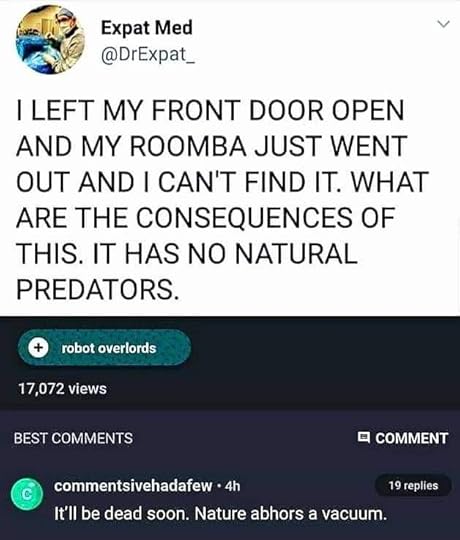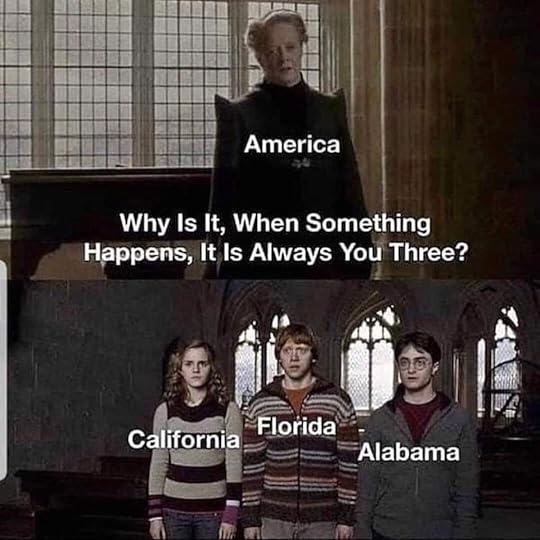FEAR: Why Humans Crave Stories That Scare Them

Fear is, in all likelihood, the single most complex human emotion. Our fears can keep us up at night, but they can also be the only thing that keeps us alive. They can save us, strangle us, liberate us or even destroy us. Like fire, fear can be intoxicating and even addictive and for sound reasons.
We understand on some primal level we NEED fear—that fear DOES keep us alive and often safe. Fear keeps us within society’s guidelines, since most of us (wisely) are afraid of prison.
We check food expiration dates, pay our taxes, and avoid accepting loans from anyone with ‘THE’ as a middle name, (Vinnie the Fish, Marty the Clown, Jimmy the Snake etc.).
Fear is to thank for many of these sound decisions.
Alas, fear can also be the ‘tame’ tiger who’s our best cuddle buddy for ten years…until it tries to eat our face off. Ask Siegfried and Roy. Thus, fear’s dichotomous and volatile nature can’t help but draw us in like those proverbial (and suicidal) moths to the flame.
A couple years back, I wrote a post about how shame is the beating heart of great fiction. But if shame is the heart, what is the BLOOD? The life force of truly magnificent stories?
My POV? Fear.
Fear IS Fiction
Some folks reading this might have a knee-jerk response of, ‘Oh, I don’t like horror.’ Yet, I want to point out ALL genres hinge on fear. What is a good romance without the fear of never being loved, never finding love, or finding then losing love?
Fear is what adds the breathless expectation, the race to the end turning pages as quickly as we can because we are AFRAID the couple we’re rooting for won’t get their act together before it’s too late.
Whether an MC is overthrowing an evil wizard, stopping a drug cartel, or opening that cupcake shop despite all her family’s nasty barbs and undermining, FEAR is the lifeblood that gives the story LIFE. The larger the fear (and more universal) the more resonant the story.
A Fearful Genre
All fiction has its place. Some fiction is purely fun and escape, and the world needs more fun and feel-good. Certain books are simply a holodeck. These stories allow us a safe space to get away.
Many books offer mental respite from the mundanities of life, a haven where we can regroup after dealing with the overwhelming pressures of being an adult (kids, laundry, bills, car repairs).
These stories serve as a place of rest and we all could use more of that!
But that isn’t all fiction.
Many writers (myself included) desire to go far deeper with our fiction, explore wounds and human issues. We’re compelled to poke and prod at larger social dilemmas.
Stories offer a mechanism where we can ‘safely’ expose that which is diseased and ALSO show these cultural cancers can be eradicated.
Speculative fiction is an excellent outlet for easing our anxiety and that of the reader’s. It’s a genre that is HOT, HOT, HOT due to a plethora of factors including but not limited to: geopolitical threats, global media, living in a surveillance society, loss of privacy, government intrusion, and Facebook.
 Toy makers…WTH? Seriously?
Toy makers…WTH? Seriously?Then, there’s the constant exposure to every variety of threat (terrorism, politics, pestilence, artificial intelligence, robot girlfriends, Alexa, Siri, Amazon Prime, global warming, and…the Kardashians *shudders*).
I know writers are told not to write for the market, which is partial advice. We don’t ONLY write speculative stories because this genre is exploding in popularity.
If you hate these kinds of stories, by all means, avoid them PLEASE. But, writing is also a BUSINESS and to ignore a genre that is expanding faster than elastic waistbands at an All-You-Can-Eat Chinese buffet is plain dumb.
This genre is blowing up for sound reasons. Speculative fiction (horror is included in this) offers a myriad of ways to help us mere humans face all the stuff we fear the most. It helps us COPE.

Since fear practically saturates every area of our lives, readers are gravitating more and more to books that allow them to put a face to the fear and then kick its metaphorical @$$.
We can’t do much of anything about escalating tensions with the Middle East or the Fukishima reactors that continue to pollute the oceans.
And, since we DO NOT LIKE feeling powerless, these stories hand us back some form of agency and ease our terrors.
What is Speculative Fiction?
 New Year’s Resolution…
New Year’s Resolution…Speculative fiction is an umbrella term publishing uses to describe narrative fiction with supernatural or futuristic elements. This includes but it not necessarily limited to fantasy, science fiction, horror, utopian, dystopian, alternate history, apocalyptic fiction, post-apocalyptic fiction.
Basically, all the weird stuff.
(And forgive me because today we are using seriously broad strokes.)
But what makes the difference between the laughable 1950s science fiction matinees and the long-forgotten pulp fiction versus the works of Philip K.Dick?
What makes The Road literature even though it’s a post-apocalyptic novella? Why is Heart-Shaped Box or Wool so deeply disturbing and simultaneously resonant?
Why do star-packed big-budget films like Jupiter Ascending fizzle? Yet Blade Runner is a science fiction staple worthy of being remade for the newest generations to enjoy?
Plot & FEAR

It’s easy to dismiss speculative fiction as escapist fluff and some of it is. But, when we look to the great speculative fiction, we see the authors are disguising explosive social commentary within narrative so it can be viewed and experienced behind the safety-glass/containment field of story.
By using story, we writers place the reader into this world then (hopefully) generate empathy that is impossible to create any other way. I’ve seen the movie I, Robot countless times and I bawl EVERY time during this scene.
This is me every….single…time…I watch that scene *BAWLS*

Stepford Wives
Was a commentary on the women’s liberation movement. It explored the very real fear of the unknown at the time. Men had no idea how to cope with the new roles and never-before-held feminine powers that had been unleashed.
Before, men could just burn those mouthy wenches as witches. But give them equal rights? *sets down kindling* So much for that.
#Awkward
Animal Farm
Was a treatise on socialism and the dangers of groupthink. The peril that comes with handing over too much power to those who claim to have noble and benevolent intentions without asking the hard questions.
Brave New World
Was Huxley’s stab at a culture propelled by temporary highs, unlimited choices and instant gratification while rejecting that which endured—love, family, marriage—because that which lasted required time, sacrifice and work.
He showed us an eerily accurate picture of what society could become if we were not vigilant…and is now probably rolling in his grave.
*Makes note to write story about Huxley haunting Instagram*
Fahrenheit 451
Was an explication on revisionist history, a culture grounded in fleeting emotion and the superficial. How invaluable books are to the bedrock of a society and how important it is that we FEEL uncomfortable. That being UNCOMFORTABLE is vastly important.
It was a warning, I’m afraid, we’ve failed to heed.
We’re living in a society where we can block, delete and take down content because ‘we find it offensive.’ Speakers are being banned from universities. Or, when they show, they’re met with protests and pepper spray simply because they represent opposition.
In far too many instances (for my tastes at least), any disagreement equals hate speech. Universities label books with trigger warnings or pull them altogether so as not to ‘offend’ anyone.
That, my friends, is exactly what happened in the world of Fahrenheit 451. This goal to make everyone ‘comfortable’ directly led to the implosion of libraries and the university and educational system and the creation of the Firemen who burned all the books (because books made people ‘feel bad’).
I’d suggest reading Fahrenheit 451 with its four walls of television and nonstop entertainment. The seashells plugged into everyone’s ears to pump in more entertainment. I’d suggest it, but…*shivers*
…we might already be living it.
*sobs*
Do Androids Dream of Electric Sheep?
Was Philip K. Dick’s commentary on artificial intelligence and just because we can play God, should we? What sort of moral implications are involved? These are issues we are now facing for real, that are no longer fiction and we are being tasked with the tough questions.
Is it wise to create and sell sex robots that come with a ‘frigid’ setting? What happens when we extend the logic of this? Blade Runner. We get Blade Runner. Also a bizarre escalation/reinvention of the previously mentioned Stepford Wives.
All these great science breakthroughs that float across our newsfeed are now fertile ground for new and possibly even better stories that prod the science with ethical dilemmas.
We (authors) show the world it’s upside down and maybe even ways to right it.
I believe that the great speculative fiction writers have always been the conscience of culture, the voice that whispers things like, ‘Just because we can, doesn’t mean we should.’ Or, ‘This really is a big deal and can go ugly really easily.’
Horror does a lot of that as well. Good horror writers tap into the subconscious angst and give it a face. What happens when society is allowed to continue to devalue human life?
When mobs are handed permission to call the shots? Let’s chat about this after watching The Purge…which ignited enough public frenzy to warrant being made into a USA Network television series.
***Or just hop on Twitter to watch it in real life.
To Make it BIGGER, Make it Smaller

When we care about everything, we care about nothing. Additionally, the human mind can’t truly grasp the loss of a billion lives. It doesn’t resonate because it can’t compute.
Thus the great spec-fic plots make the big small. We tell a small story of one person or a group of people as it plays out on the far larger stage. World War Z anyone?
This is why so many Hollywood movies about asteroids hitting the planet fizzle while The Road simply guts us.
Not All Big Stories are Big
Sometimes speculative fiction isn’t addressing something big, rather it dives into the intimate and deeply personal. Heart-Shaped Box is about a vengeful ghost out to destroy an aging rock star and anyone he loves.
While the supernatural elements are terrifying, what is so beautiful and moving about this story is how the malevolent ghost forces the MCs to face and conquer inner demons they would have been happy to bury…if not running for their lives.
The human story is what elevates this from a forgettable scary book into a work that prods at the deep dark places of the characters (and by extension the reader).
Character & FEAR

Writing speculative fiction is really tough. It has a lot in common with literary fiction. In FACT, spec-fic in general (INCLUDING HORROR) makes up a very large percentage of what’s viewed as ‘great literature.’ Fahrenheit 451, Brave New World, 1984, Frankenstein, Dracula, The Haunting of Hill House, everything written by Edgar Alan Poe EVER and I could go on.
But won’t 



